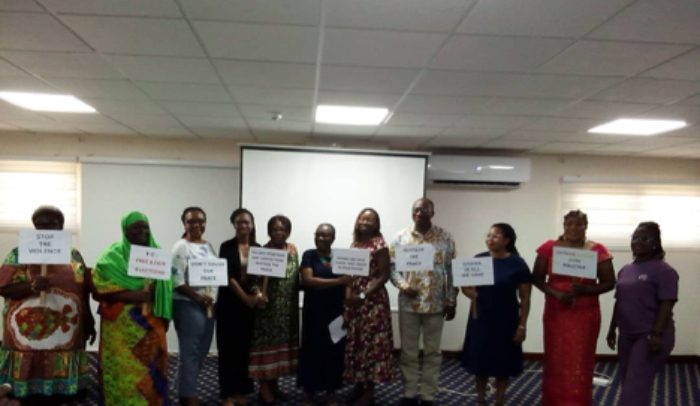Stakeholders at the project launch
Abantu, in partnership with Star Ghana Foundation, has launched a project on strengthening capacities on gender equality for a socially inclusive Ghana during election 2024 and beyond in Accra.
This project aims to advocate for women’s participation and representation, particularly that of young women and women with disabilities, within all decision-making spaces of the country’s governance system.
Resource mobilisation and sustainability manager of Abantu, Hamida Harrison reminded women that due to a lack of representation in governance, the concerns of women are swept under the rug and forgotten.
“They say if you’re not on the table, you’re not counted,” she said.
She further expressed disappointment in the fact that currently, the women present in Parliament are about 14.5 %, with the numbers expected to dwindle after this year’s elections.
“The 14.5% is actually lower than the African continental percentage. I think the African continental percentage is about 26% and Ghana, the first country to have legislated an Affirmative Action and we are going to be 9% in 2024,” she quizzed.
She mentioned that the project is designed to do a number of things, like public education on the importance of having females in Parliament, capacity building, and including the younger generation in important conversations like this.
The government was nudged to remember women when nominating and appointing ministerial officers, so the numbers rise.
Director, Department of Gender at the Ministry of Gender, Children and Social Protection (MoGCSP), Faustina Acheampong, in a speech read on her behalf stated that the participation of women in decision-making and the electoral process is vital, as it will allow the issues concerning women to be heard by change makers.
The Executive Director of Gender Studies and Human Rights Documentation Centre, Dorcas Appiah, attributed the low participation of women in politics to several factors, including the high cost of doing politics, violence during elections, and patriarchal norms that continue to see women in purely reproductive roles and not recognise their productive contributions to the development of the country.
“While political parties rely on women’s votes to win elections, they see women’s roles and their activities as mere ‘praise singers’ not worthy of enjoying the bounties of political office,” she said
Those present were admonished to keep advocating for women, by simply voting for women who stand for political positions despite their political affiliation.
By Vera Owusu Sarpong


